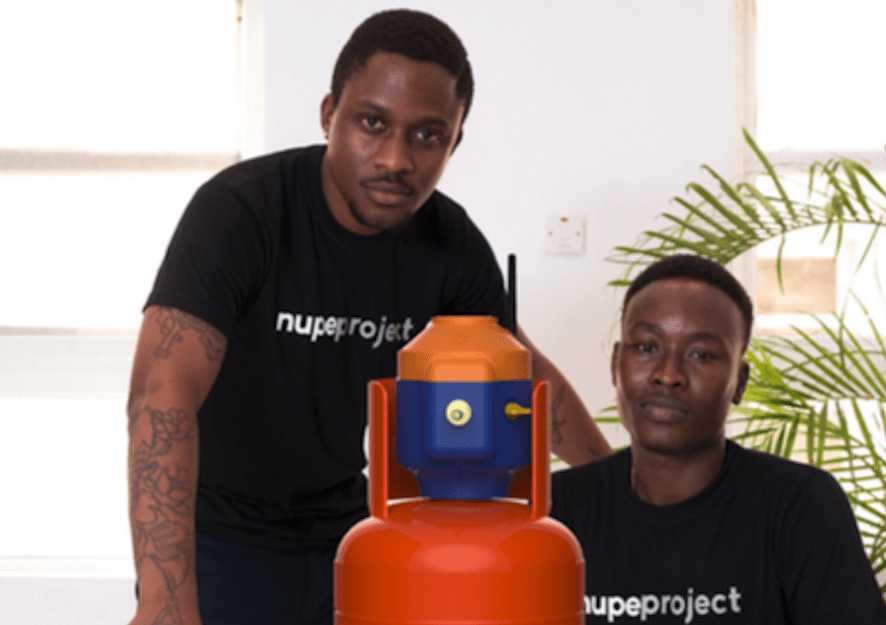Nupe Energy is a renewable ble energy startup that is into the provision of clean energy for Nigerians. The West African nation is among countries that heavily rely on open fires to cook. Available statistics show that nearly half the population has no access to gas to cook.
Nupe Energy was established by a team made up of Damilola Onanuga (Design director), Funfere Koroye (Head, product), and Omafume Niemogha (Engineering) to provide clean energy to Nigerians.
The company has produced an LPG cylinder smart meter that intelligently controls the gas flow, monitors cylinder fuel level remotely, and facilitates the gas purchase, according to Techcabal.
The device, known as NUGAS, uses different cellular networks to display LPG volume and prompt delivery through the cloud. The smart meter works with the NUPAY app. The app allows customers to prepay and postpay for gas using a mobile wallet or USSD.
Onanuga told Techcabal in May that his team is developing an IoT solution that ensures a constant supply of clean cooking for people. He explained that their device uses both hardware and software to make LPG available for households through a smart metering system.
“This allows customers to know they are about to run out of gas, and also alerts a nearby gas retailer for a refill to be made using the fastest route possible,” he said.
As of May, the smart meter costs $50, which is quite expensive for many consumers but one does not pay for it at once but over a period. “The cost of the meter is initially borne by the company which purchases it. Over time, the company recoups the cost of the meter from the customer,” according to Koroye.
Like many early startups, Nupe Energy has its challenges. One of them is dealing with competition and regulation. Onanuga said the team used two years, researching and developing their product. Although there is the fear of bigger companies stealing their innovation, Onanuga said they have invested enough to produce a superior product and see no threats at the moment.
On the change of regulations by the Nigerian governments at will, Onanuga said they are not building a market for just Nigeria but are also targeting other African countries.
“While developing this business and talking to different businesses, we’ve received a lot of interest from other African countries and even outside Africa. So even though Nigeria is our initial market, we’re not building for just Nigeria,” he said.

